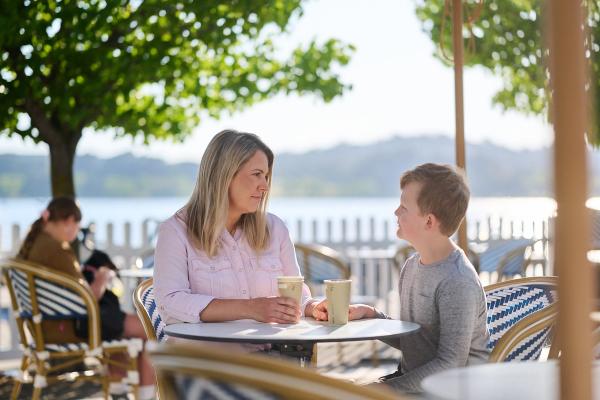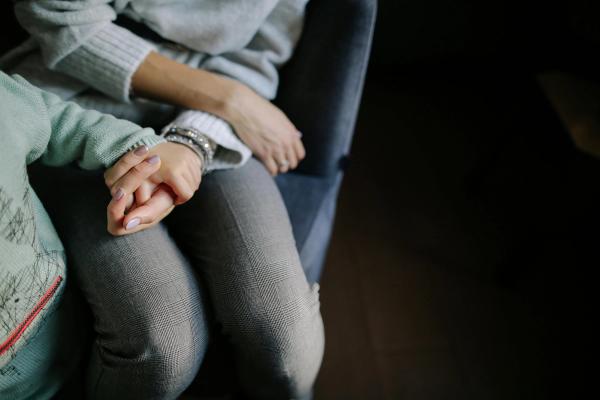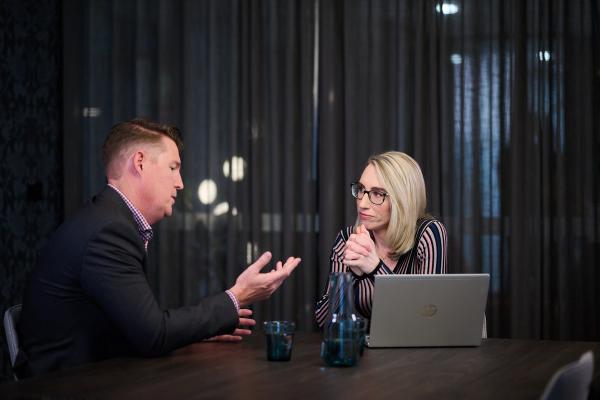
Rising costs and women leaving relationships

Growing economic pressures have combined with existing patterns in women’s employment to create overwhelming financial barriers for women trying to leave abusive and dangerous relationships.
The widely reported rental crisis and rising costs of living have compounded age-old gender inequality issues, according to Karinya House interim CEO Belinda Munn.
“The tendency for women to be in more insecure employment or employed in lower-paid areas of occupation, plus the gender wage gap – all of those things contribute to their vulnerability,” she said.
“The women we work with are experiencing the cumulative impact of it all, coupled with the lack of affordable housing in Canberra and the increasing cost of living.
“It’s a perfect storm.”
She said demand at Karinya House, which helps at-risk women who are pregnant or parenting, has always outstripped supply – but now more than ever, the community services sector is struggling to meet mounting needs.
“Over the past two years and particularly the past six months, we’ve seen a significant increase in requests for material and financial support,” she said.
“If you’re already living on the margin and just scraping by, you’re much more susceptible to [economic] fluctuations.”
Karinya House has seen a dramatic uptick in requests for basics like petrol to drive children to school, grocery bills, baby essentials like nappies and medical bills, particularly for children navigating the impacts of trauma such as domestic violence.
Like many community services, it has relied on the Canberra community’s generosity for a portion of its operating costs.
But this community has also felt the pinch of rising costs, putting these services in jeopardy at the worst possible time.
“Our grocery bill has increased significantly. If we as a service have felt it, members in the community have as well, which means they have less disposable income,” Ms Munn said.
“So you have community services all reporting an increase in demand since COVID, the rising costs of living and housing crisis increasing that demand further, then the communities we rely on to help fund those services experiencing the impact of increased living costs themselves.
“All these things collide, creating a real risk that services start to struggle at a time when demand for them is increasing.”
Ms Munn said women are the fastest-growing cohort experiencing homelessness – particularly older women. Taking time out of the workforce to care for children impacts their superannuation, which rears its ugly head after retirement.
Safe and affordable housing has been out of reach for many women in Canberra – Australia’s most expensive city for renters – which has placed unsustainable pressure on services.
“All support accommodation in Canberra is at full capacity; we all have waiting lists,” she said.
“We’re thankful for our close working relationship with the ACT Government; they’re more than aware of the issues. But these are wicked problems and they don’t have easy solutions.”
Parker Coles Curtis director Catherine Coles volunteers at the Women’s Legal Centre and works alongside community services to assist her female clients.
She said there isn’t enough funding for services to assist women fleeing violent relationships.
“When I say violent relationships, I don’t just mean physical – we’re seeing more and more cases of coercive control where there’s been alienation of the victim from their support networks and finances,” she said.
“For women in these kinds of relationships, your access to funds can be limited by the very make-up of your relationship. There aren’t enough services assisting them to rise up from that and rebuild.
“We would like to see more funding to the sector, more assistance to those organisations at the frontlines of these issues, so we can support our clients as best as possible.”
She said the ‘women’s safety package’ announced in the Federal Budget might make up a portion of what has been slashed but not necessarily address the current overwhelming need.
Catherine Coles of Parker Coles Curtis family lawyers. Photo: Parker Coles Curtis.
For women who make the often complex decision to leave an abusive or violent relationship, Ms Coles offered some practical pointers.
“Look after your safety and your children’s safety first,” she said.
“Depending on the access you’ve had to finances during your relationship, try to arm yourself with as much paperwork as possible. Your advisors can help you figure out what needs to be untangled.
“If relevant and possible, report to first responders and seek advice from organisations like DVCS (Domestic Violence Crisis Service) or YWCA (gender equality group).
“A lawyer can assist with securing a family violence order if needed and work alongside community organisations and financial and other services to figure out how you can safely exit your relationship and meet your basic living and emotional needs.
“Last but not least, lean on any support network you may have – family, friends, counsellors.
“All these things combine to help find stability and certainty when life has been turned upside down.”
If you need support to leave a relationship, contact our kind team today and we'll guide you through the options and provide you with advice for your situation.


